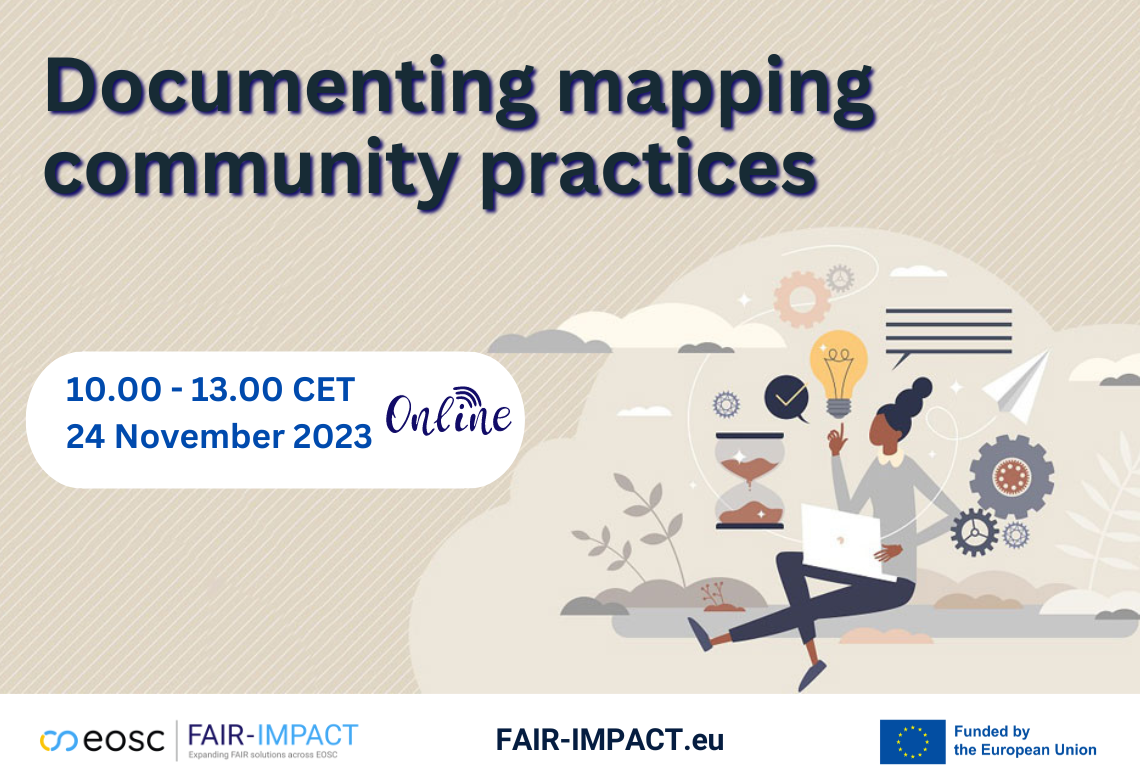When: 24th November 2023 - 10:00/13:00 CET
Where: online
Semantic artefacts - a broader term to include ontologies, terminologies, taxonomies, thesauri, vocabularies, metadata schema and standards - are key to achieving data interoperability. They are essential to the implementation of the FAIR principles. With the growing number of semantic artefacts and their diversified uses, interconnecting these artefacts becomes critical but challenging. One approach to interoperability and integration is to identify/generate mappings/crosswalks between different artefacts of the same domain or the same type of information. Although known as ontology matching or ontology alignment, it can be applied to the whole spectrum of semantic artefacts.
We need a strategy to deal with mappings and to ensure mappings are made available following the FAIR principles in relevant mapping repositories where they can be curated, integrated and rendered for use.
FAIR-IMPACT is holding a series workshops to discuss issues around mappings and crosswalks and how they can become shareable and reusable, i.e. FAIR, elevating them to “first class” citizens in the FAIR data world.
In our 1st workshop of the series, 'Why Mappings Matter and how to make them FAIR?', we introduced participants to the motivation behind doing the mappings and how they could benefit even more by making mappings FAIR including methodologies, formats, tools, and requirements for FAIR mappings and examples.
A follow up series of workshops aims at investigating existing and established and popular mapping methodologies and processes used by communities from their creation to their maintenance. From these different methodologies and processes, we should be able to determine a common process that could be shared with communities willing to start with their mapping process. One final objective is to write a FAIR cookbook recipes to share openly these methodologies. In our second workshop, we will identify common components in the mapping process from the various communities which we will focus on those in the subsequent workshops.
Workshop format:
This workshop will be based on short presentations of community mapping strategies and will be followed by a discussion on common steps and most useful existing strategies. To foster discussions, we will propose breakout groups that will discuss the process of mapping, strategies and common steps. The breakout groups will then reconvene with a plenary discussion and wrap up to review findings.
Download the slides from Zenodo
Watch the recordings
Agenda:
| 10:00-10:05 |
Welcome and introductions to the objective of the FAIR-IMPACT project and this workshop. |
Yann Le Franc, eScienceDataFactory and FAIR-IMPACT partner |
| 10:05-10:15 |
Contributing to FAIR CookBook |
Philippe Rocca-Serra |
| 10:15-11:25 | Community Presentations | |
| DataCite/Dublin Core mapping | Isabel Bernal, CSIC | |
|
Mapping data standards for the Minimum Information about a Digital Specimen |
Sam Leeflang, DiSSCo |
|
|
Mappings in the marine domain: Use cases, practices, standards and governance |
Alexandra Kokkinaki and Gwenaelle Moncoiffe, British Oceanographic Data Centre |
|
|
James McLaughlin, OLS, EMBL-EBI |
||
|
Simon Jupp, SciBite/Elsevier |
||
|
Alain Monteil, CodeMeta |
||
|
Linda Reijnhoudt, DANS |
||
| 11:25-11:40 | Quick coffee and break | |
| 11:40-12:40 | Breakouts. Objective: identify common components of a mapping process | |
| 12:40-13:00 | Feedback from groups, summary, discussion and next steps | |
Relevant documents that will be used during the session:
- Miro Board
- Collaborative Note Document
